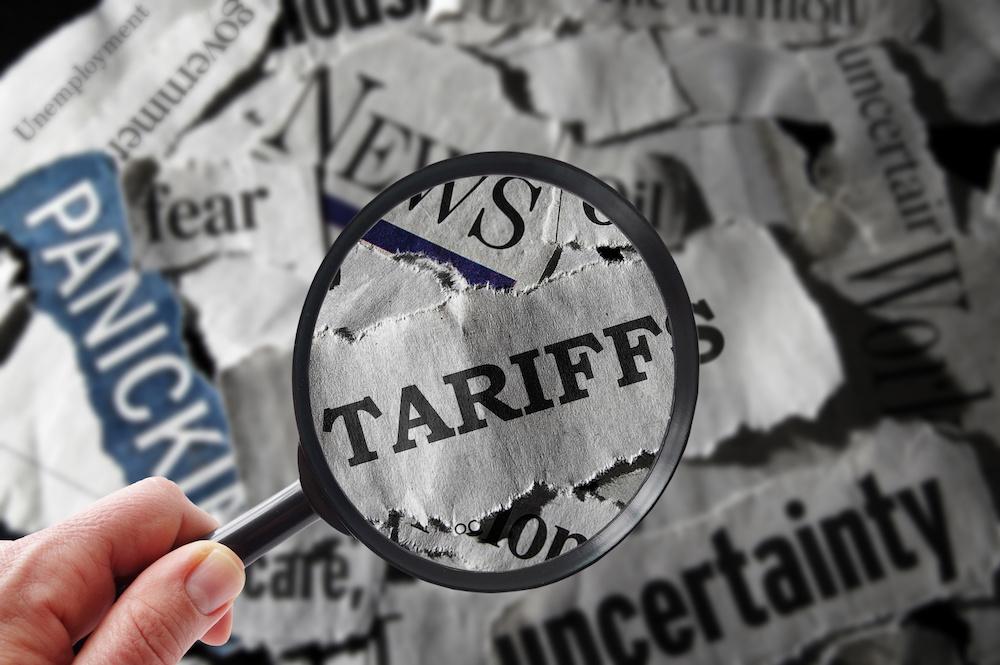In recent months, the world has witnessed a surge in trade tensions among major economies, leading to growing concerns about economic uncertainty. The complex interplay of geopolitical conflicts, protectionist policies, and shifting alliances has created a volatile environment that threatens to disrupt global trade patterns. This article explores the key factors contributing to rising tensions and the potential consequences for the global economy.
Trade Wars and Tariffs
One of the primary drivers of escalating trade tensions is the rise of trade wars and the imposition of tariffs. The United States and China, the world’s two largest economies, have been engaged in a protracted trade dispute, imposing tariffs on each other’s goods. This tit-for-tat approach has created a ripple effect, with other countries also resorting to protectionist measures to safeguard their domestic industries. Such actions hinder the free flow of goods, increase costs for businesses, and dampen overall economic growth.
Geopolitical Conflicts
Geopolitical conflicts play a crucial role in exacerbating trade tensions. For instance, strained relations between the United States and Russia, coupled with geopolitical rivalries in the Middle East, have led to the imposition of sanctions, embargoes, and restrictions on trade. These conflicts create an atmosphere of uncertainty, making it difficult for businesses to plan and invest in international trade.
Technology and Intellectual Property
The rapid advancement of technology has also emerged as a major source of trade tensions. Intellectual property rights violations, forced technology transfers, and cyber espionage have become significant concerns in international trade. Countries are increasingly vigilant about protecting their technological innovations and are willing to adopt measures that may restrict the flow of technology across borders. Such restrictions hinder innovation, disrupt global supply chains and fuel trade conflicts.
Shifting Alliances and Regional Blocs
The evolving geopolitical landscape has led to the formation of new alliances and regional blocs. These groupings often have their own trade agreements and regulations, creating a fragmented global trade system. The emergence of regional trade agreements, such as the Comprehensive and Progressive Agreement for Trans-Pacific Partnership (CPTPP) and the African Continental Free Trade Area (AfCFTA), can divert trade flows away from traditional trading partners, further intensifying trade tensions.
Consequences and Outlook
The rising tensions in global trade have far-reaching consequences for the world economy. Firstly, increased trade barriers and protectionist measures result in higher costs for businesses and consumers. This can lead to reduced consumer purchasing power, lower investment levels, and decreased economic growth. Secondly, trade tensions can disrupt global supply chains, affecting industries reliant on international trade and causing job losses. Lastly, the uncertainty surrounding trade relations undermines investor confidence, making businesses hesitant to make long-term investment decisions.
Looking ahead, it is essential for countries to seek avenues for dialogue and negotiation to defuse trade tensions. Strengthening multilateral institutions, such as the World Trade Organization (WTO), and fostering cooperation among nations can help create a more stable and predictable global trade environment. Emphasizing the benefits of free and fair trade, along with addressing legitimate concerns related to intellectual property and technology transfers, will be crucial in promoting a balanced and sustainable global economy.
Conclusion
As trade tensions continue to escalate, the global economy faces an uncertain future. The interplay of trade wars, geopolitical conflicts, and technological advancements has created a challenging environment for international trade. It is imperative for countries to prioritize cooperation, dialogue, and multilateralism to mitigate the risks posed by escalating trade tensions. A collaborative approach is essential for fostering economic growth, ensuring the stability of global supply chains, and promoting a prosperous future for all nations.










